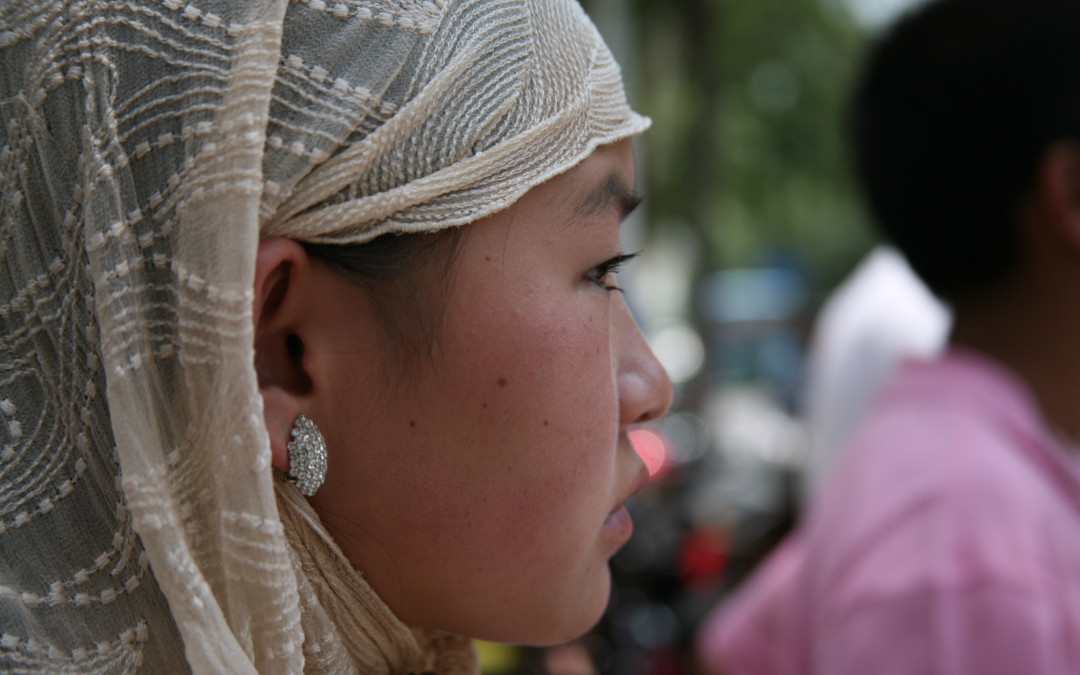“And that’s why I know my sins are forgiven.” I ended the gospel presentation. The Hui girl looked up at me. She had been very attentive as I explained the gospel. She then went on to explain her own opinion. I’ll summarize it for you:
“I don’t care.”
It wasn’t a mean-hearted apathy. It was just a content, blinded apathy. She was spiritually sick and dying and did not have any desire to seek healing.
Is there no balm in Gilead? Is there no physician there? Why then has the health of the daughter of my people not been restored? Jeremiah 8:22
Jeremiah, one of the most notable prophets of the Old Testament was in anguish. He was in anguish for many reasons. For one, he had several attempts made on his life. When he complained about this to the Lord, God comforted him by assuring him that the persecution would get much worse than this. He was beaten. He was mocked. He was hated by many. It’s no surprise that he wrote the happy book of Lamentations according to Jewish tradition. It also makes sense that he was called, “The weeping prophet.”
So what was it this time? Why is Jeremiah weeping again?
In Chapter 8 of his book Jeremiah is weeping not because he’s being hated, not because he’s being beaten or mocked. He’s weeping over his people (yes… the ones trying to kill him). Is there no balm in Gilead? Jeremiah cries. One of the first times we see Gilead mentioned is in Genesis. A caravan of “Ishmaelites” is taking some gum, myrrh and you guessed it… balm to Egypt for trade. Gilead was famous for its balm. Because this area was known for its medicinal balm, many physicians naturally migrated to move their professions to the area of Gilead. It became known as a place of healing. Later, it was made a city of refuge as well.[1]
Jeremiah describe the “sickness” of his people earlier in the book. They have forgotten the Lord their God. “Return, O faithless sons; I will heal your faithlessness.” (Jeremiah 3:21-22) The sickness is their faithlessness. Their sickness was “forgetting the Lord.” The balm? We see this throughout the book of Jeremiah, the Psalms and the Word as a whole really. He sent out his word and healed them, and delivered them from their destruction. (Ps 107:20)
Jeremiah’s question is meant to provoke a resounding, “Yes, of course there’s balm in Gilead.” “Of course there’s a physician there.” OK, so we know the sickness (faithlessness) and we know the balm (the Word) and we know the physician (God).
So why is Jeremiah upset?
The issue here isn’t that there is no balm or physician. The issue is that the people are not wanting their wounds healed. This is in part because their wounds already feel somewhat healed due to the light medicines of the false prophets: They have healed the wound of my people lightly, saying, Peace, peace,’ when there is no peace. (Jeremiah 6:14) However, Jeremiah also says this because they have no desire to repent.
So what happens?
The people end up going into exile. Many of God’s people are killed, tortured and made into slaves. This is why Jeremiah was weeping, he was the only one who really believed that God would come in wrath. He desperately wanted their faithlessness to be healed but they people would not listen to him.
However, there is good news. Once the people are put into exile, they begin to call on the Lord. God allowed them temporary exile, temporary slavery and temporary hopelessness in order to save them from the eternal exile from God, infinite enslavement to sin, and never-ending hopelessness. The pain of exile helped them to remember their true God. Jeremiah sees this coming as well: “In those days and in that time, declares the Lord, the people of Israel and the people of Judah shall come together, weeping as they come, and they shall seek the Lord their God.” (Jeremiah 50:4)
To be honest, in my opinion. One of the biggest hindrances to the Hui hearing the gospel is their blind happy contentment with their sin. There’s no brokenness. Most Hui do not fast during Ramadan. Most Hui do not read the Koran. Most Hui do not pray faithfully. Most Hui don’t care about their sin. The Hui are not a people who desire for their wounds to be healed.
Application:
- Pray for Jeremiah-like-prophets. The Hui do not convert easily. It takes a sort of holy-stubbornness to reach them. We need prophets going to the Hui who cannot but speak the truth. Jeremiah was so depressed one time with his calling that he literally tried to stop prophesying.
If I say, “I will not mention him, or speak any more in his name,”
there is in my heart as it were a burning fire shut up in my bones,
and I am weary with holding it in, and I cannot.
Pray for those who are sent to the Hui to have a prophet-like incapability to cease in their proclamation of the Word.
Pray for weeping prophets who will share with passion and love.
- Pray against light healing
Hui reassure one another that they are saved because they are “good” people. They reassure one another and themselves that they have never killed anyone, they’ve never stolen money and that they are nice to people.
Pray against Imams and leaders to teach that God’s holy wrath can be appeased by such low standards. Pray that they will see that their wounds are not healed and there is no peace with God outside of Jesus.
- Pray for their eyes to be open
It took temporary exile for the Israelites to repent. It took one day of a pouty prophet proclaiming wrath for Nineveh to repent. We don’t know what it will take for the Hui. Pray that they will repent quickly. Pray that will seek out the balm in Gilead.
[1] Site: Arthur, Kay. Lord, Heal My Hurts: A Devotional Study on God’s Care and Deliverance (p. 37). The Crown Publishing Group. Kindle Edition.


Wow, thanks for sharing. I am praying. May God’s salvation be known and trusted among the Hui!